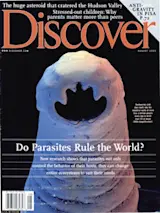T. Colin Campbell grew up on a small dairy farm of 210 acres, nestled among glorious green pastures near the Shenandoah Valley in northern Virginia. Almost from the moment he learned to walk, he dogged the footsteps of his father, Tom Campbell, as he tended the farm’s 20 to 30 milk cows. Eventually, young Colin was given the chore of “stripping” by hand any milk from the cows’ udders that the milking machine left behind. He also learned how to operate the family butter churn and, on special weekends, helped man the hand-crank bucket used to make ice cream. The Campbells were a simple family, without much money, but considered themselves blessed to have milk straight from the cow. “We had the nectar of life,” Campbell says. “I was proud of the fact that somehow, every day, I could drink a gallon of milk, or more.”
Campbell went on to ...














